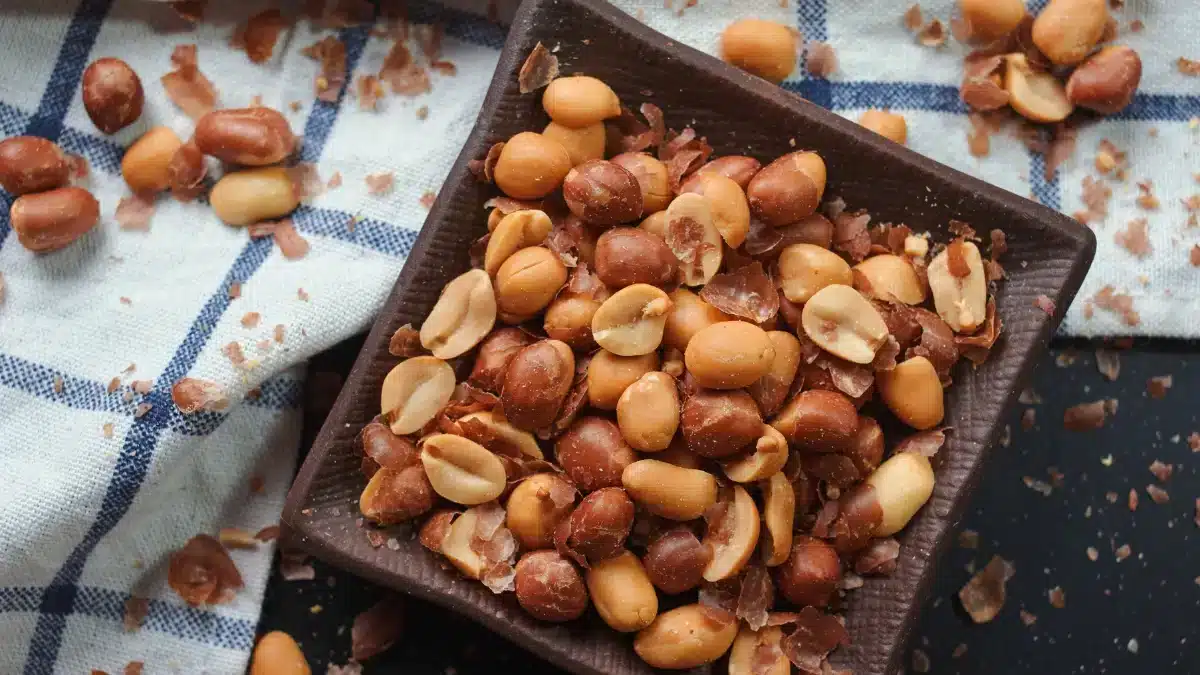Vegetarian Diet for PCOS: A Comprehensive Guide to Managing Symptoms
In today’s fast-paced world, many women want natural approaches to manage Polycystic Ovary Syndrome (PCOS).
One such approach gaining popularity is adopting a vegetarian diet for PCOS.
Various foods can help provide the body with enough proteins, fibers, and nutrients to manage the symptoms.
This comprehensive guide delves into the intricacies of a vegetarian diet and its potential benefits for women with PCOS.
We explore the key principles, nutrient considerations, and lifestyle factors contributing to a successful vegetarian approach to managing PCOS symptoms.
PCOS-friendly vegetarian diet
Whether you’re new to the plant-based lifestyle or have been a vegetarian or vegan for a long time, including these foods in your diet can be beneficial.
They can support your fight against PCOS.
Following are some of the foods you can take if you are vegetarian:
Seeds and nuts
These are excellent salad toppings or healthy snack options.
Seeds and nuts are naturally high in fiber and can aid in weight loss.
Walnuts, almonds, peanuts, and chia seeds can offer potential benefits for treating PCOS.
Lentils and beans

When it comes to a plant-based diet, protein is key; Lentils and Beans step up to the plate as worthy meat alternatives.
They pack a punch with an impressive 15 grams of protein per cup.
But that’s not all; they also deliver nearly 50% of your daily fiber needs, supporting a healthy digestive system.
Beans provide around 40 grams of carbohydrates per cup, ensuring a balanced energy source.
Protein powder
If you’re seeking additional protein options beyond beans, consider the convenience and versatility of protein powder.
It’s a reliable supplement for your meal planning, offering a substantial protein boost without unnecessary sweeteners or additives.
Consider choosing protein powders that are completely made from plants.
Eggs (for Ovo vegetarians)
For Ovo vegetarians who include eggs in their diet, you have a tasty and protein-rich option.
Eggs are a valuable source of protein containing 6.3g of protein that can seamlessly integrate into your PCOS-friendly meal plan.
Moderate consumption can support your nutritional goals.
Consult a nutritionist for personalized dietary advice and diet plans.
Fruits
Berries like strawberries, blueberries, raspberries, and blackberries are packed with vitamins and phytochemicals that benefit women with PCOS.
Citrus fruits such as oranges, lemons, and grapefruits offer vitamin C and flavonoids, reducing inflammation and supporting hormone balance.
Avocado, known as a “superfood”, provides healthy fats and nutrients to improve insulin function.
Apples and pomegranates offer fiber, antioxidants, and nutrients that stabilize blood sugar levels and combat inflammation.
Grapes and plums contain antioxidants, vitamins, and fiber that aid in reducing inflammation and regulating blood sugar.
Adopting a healthy lifestyle for PCOS
Beyond diet, incorporating other lifestyle factors can enhance the effectiveness of a vegetarian approach in managing PCOS.
Here are some practical tips:
Regular physical activity

Regular exercises, such as cardio workouts and strength training, support weight management and improve insulin sensitivity.
Yoga can also help in boosting overall well-being.
Finding physical activities you enjoy and making them a part of your routine can positively impact PCOS management.
Stress management and self-care
Chronic stress can worsen hormonal imbalances and PCOS symptoms.
Prioritizing stress management techniques like mindfulness, meditation, and deep breathing exercises can help.
Engaging in hobbies can reduce stress levels and promote emotional well-being.
Seeking professional guidance
Working alongside registered dietitians or nutritionists specializing in PCOS management and vegetarian nutrition is essential.
They can provide personalized guidance and meal plans.
Doctors can also address individual nutrient needs to optimize the vegetarian diet for PCOS.
Conclusion
In conclusion, a vegetarian diet for PCOS provides remarkable health advantages.
This diet includes seeds and nuts, beans and lentils, and protein powders for adding to taking protein-rich diet.
People who are ovo vegetarians can also go for eggs, a rich protein source.
Plant-based foods can help balance hormones, manage insulin resistance, and control inflammation.
It’s an empowering choice for your PCOS journey. Prioritize your well-being with a healthy vegetarian lifestyle.
Take control of your health and thrive with a vegetarian diet for PCOS.
Read 13 Nutritious Snacks for PCOS: A Healthy Way to Curb Your Cravings to know what to eat.
Frequently Asked Questions
Can being a vegetarian help with PCOS?
A plant-based diet that focuses on whole grains, fruits, vegetables, and vegetarian protein sources may positively affect PCOS management. It can enhance insulin sensitivity, control weight, and provide essential nutrients. However, personalized guidance from a healthcare professional is advised as individual requirements may differ.
Can a plant-based diet reverse PCOS?
Following a plant-based diet may positively affect PCOS symptoms and general well-being. It can aid in weight control, hormone balance, and insulin sensitivity. However, addressing PCOS requires a holistic approach that involves additional lifestyle modifications and medical support.
What vegetarians are high in protein for PCOS?
Individuals with PCOS who follow a vegetarian diet can include protein-rich foods like legumes, tofu, tempeh, edamame, quinoa, Greek yogurt, cottage cheese, and eggs. These plant-based options offer the necessary amino acids for hormonal balance and well-being.
Can I have protein with PCOS?
Protein is vital for individuals with PCOS. You can incorporate protein-rich foods such as lean meats, poultry, fish, eggs, dairy products, legumes, tofu, and tempeh. Sufficient protein intake helps regulate hormones and maintain a balanced diet for managing PCOS symptoms effectively.
WowRx uses only high-quality sources while writing our articles. Please read our content information policy to know more about how we keep our content reliable and trustworthy.






